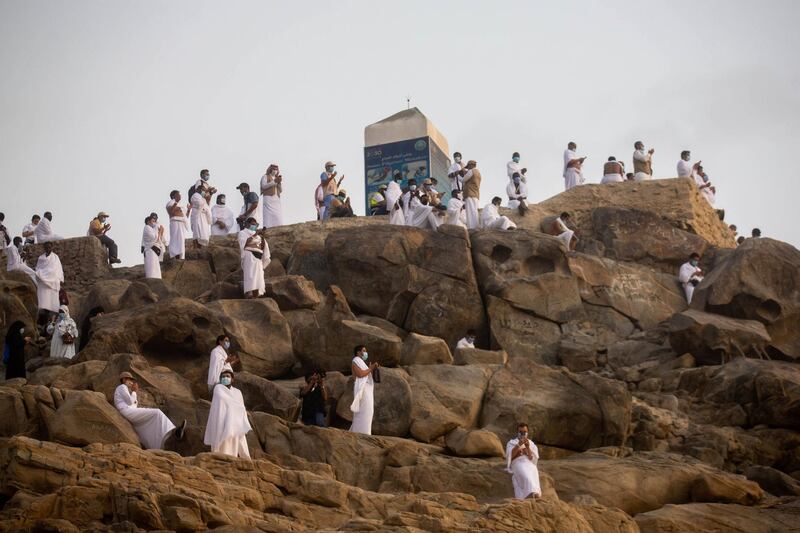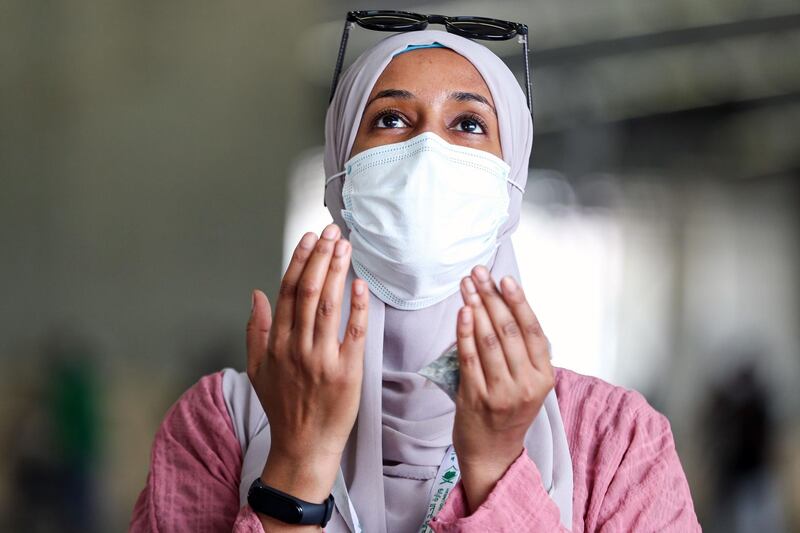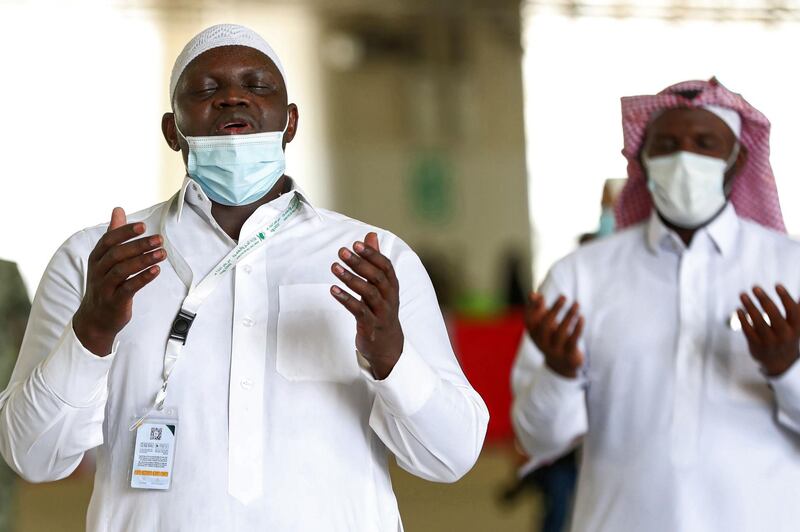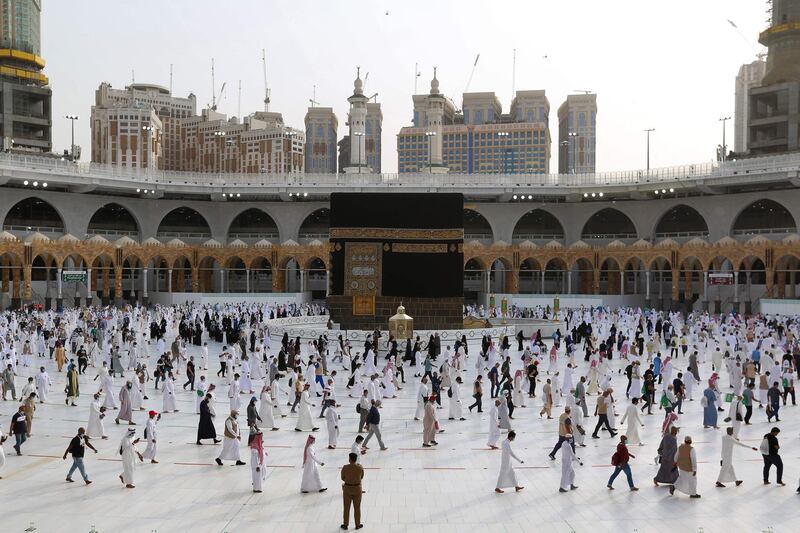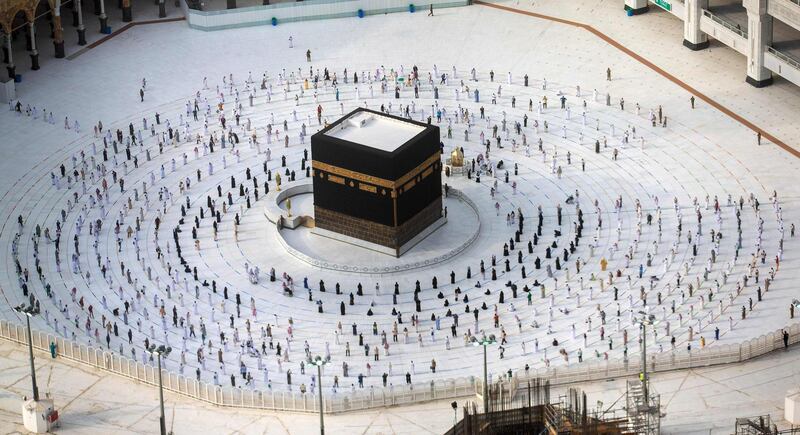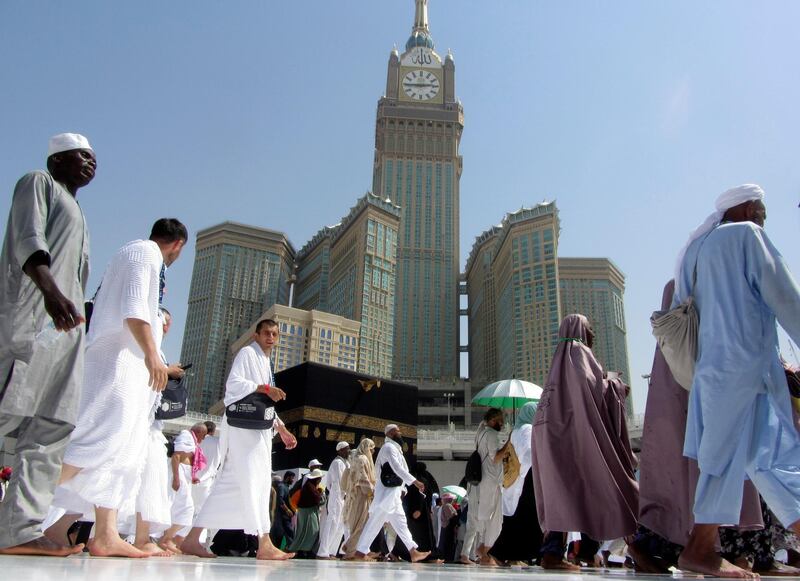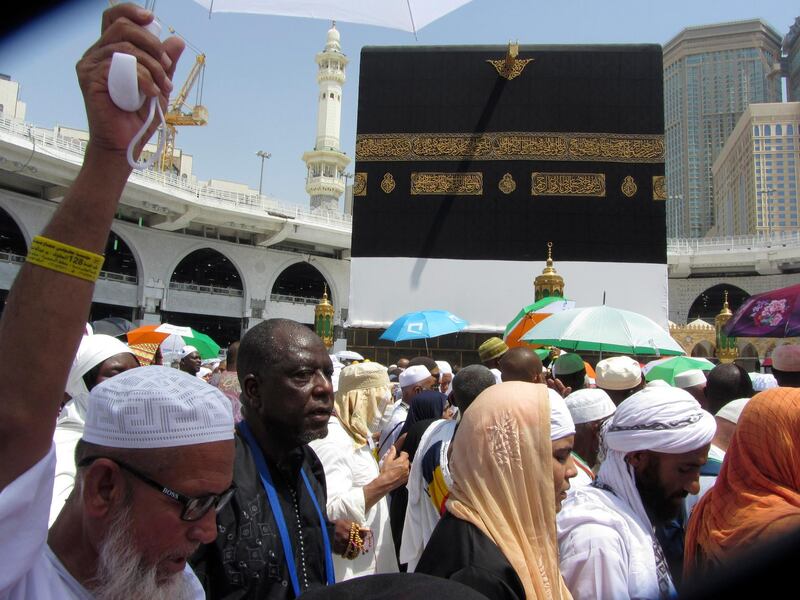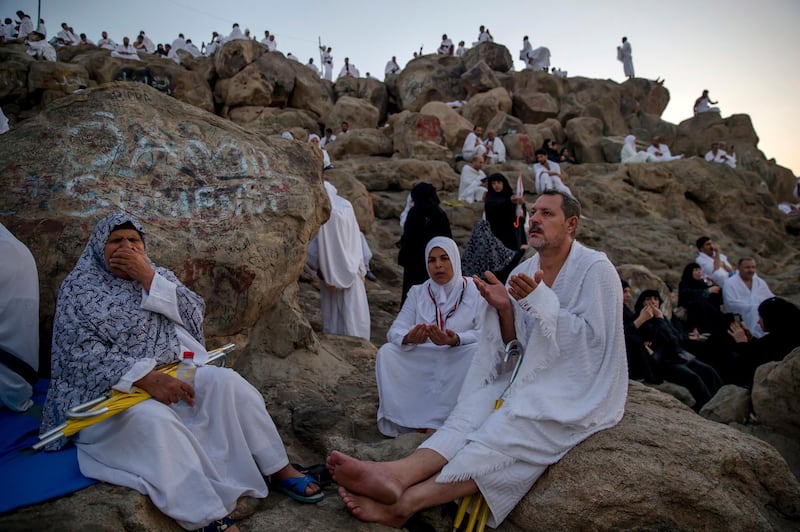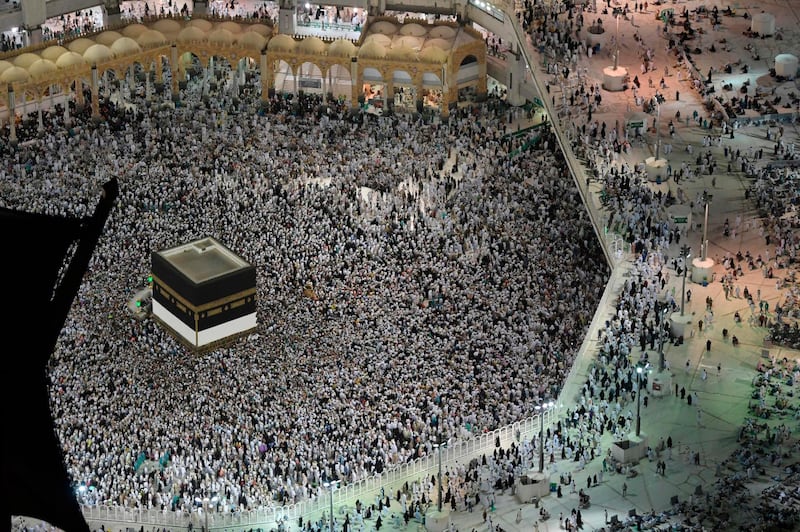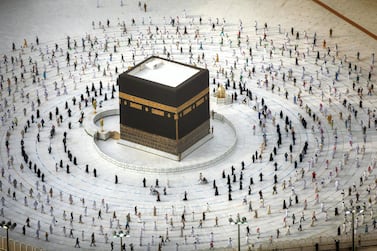Saudi Arabia's King Salman approved measures to help Umrah and Hajj pilgrimage operators after a year of curtailed travel and tight controls on the numbers of the faithful allowed into the Makkah and Madinah holy sites amid concerns over Covid-19.
The goal is to help compensate companies and persons that support the pilgrimages and lost income due to the global pandemic. The government has launched more than 150 initiatives, allocating over SR180 billion to the cause since the pandemic, according to SPA.
Accommodation centres will be exempt from the annual fees for licences in the cities of Makkah and Madinah, where the pilgrimages take place.
Eligible companies in the sector will also be exempted from expatriate worker fees for six months. They can renew licences for accommodation centres free of charge in the two cities for a year, which can be extended.
For expatriates working in activities related to Hajj and Umrah, the collection of residency renewal fees will be postponed for six months, provided that the amounts are paid in instalments over a year, the state news agency SPA said.
King Salman further approved the exemption of fees companies pay for expatriates working in the Hajj and Umrah sector and for their dependents for a period of six months.
The pandemic has taken a toll on expatriates working in the Hajj and Umrah sector, who could no longer afford to keep their families in the Kingdom or pay for necessities due to lack of income and business opportunities.
Asad Khan, a salesman at a local travel agency in Jeddah told The National he had to send his family home because they couldn't afford living in the kingdom due to the high dependent fees and lack of work during the pandemic.
“We suffered a lot personally and business wise. I had to send my wife and kids back to India, as I couldn’t afford to keep them in Saudi Arabia any more with the growing dependent fee and not knowing if I will even get my next salary because business was down the whole of last year," he said.
"We had an investor who lost all his money. So it was a bad situation for all of us. I am really relieved and grateful to the King for helping us and understanding our concerns. Our industry was hit bad,” he added.
Umaimah Mahmoud, an Egyptian student living in Jeddah said her family working in the sector could not afford to send her to university.
"My dad couldn't afford to pay for my education, I had to take a gap year. He saved for my education but he told me it was uncertain if he could keep up with payments. It has been a hard year, but with these much-needed initiatives at least he doesn't have to pay our dependent fees, since we are five siblings and it is bound to take the pressure off," she told The National.
Licenses for bus companies providing travel for Hajj and Umrah services have been extended without charge for a year and their customs duties have been postponed for three months, which can be paid off in instalments over a period of four months.
"It was hard to make ends meet," Haider Ali, a Pakistani bus ticket agent living in Dahaban, told The National.
“We used to have a lot of traffic to Makkah and Madinah but since March last year our buses were stranded in parking lots. We had no passengers, our salaries were delayed, because the owners were not making any money. But these initiatives give me hope that our situation will become better. This is the best news I have heard since the pandemic hit us,” he added.
Umrah was suspended last March because of the pandemic but returned with strict Covid-19 protocols and limited numbers.
No cases been reported among the five million worshippers who performed Umrah since October last year. Pilgrims register though the government app and receive time slots to ensure there is no overcrowding at sites.
Last year, Hajj went ahead despite the pandemic. But rather than the more than two million who usually attend from around the world, only 1,000 residents and citizens already in the kingdom were allowed.
All attendees needed to quarantine in advance, and the entire pilgrimage was socially distanced. No Covid-19 cases were recorded.
The Saudi authorities have not yet said how this year's event will take place although the health minister said earlier this month that all those working the pilgrimage must be vaccinated.


